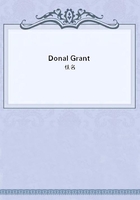
第74章
After a while, everything was changed. He was no longer either with his sheep or his company. He was alone, and walking swiftly through and beyond the park, in a fierce wind from the north-east, battling with it, and ruling it like a fiery horse. By and by came a hoarse, terrible music, which he knew for the thunderous beat of the waves on the low shore, yet imagined issuing from an indescribable instrument, gigantic and grotesque. He felt it first--through his feet, as one feels without hearing the tones of an organ for which the building is too small to allow scope to their vibration: the waves made the ground beat against the soles of his feet as he walked; but soon he heard it like the infinitely prolonged roaring of a sky-built organ. It was drawing him to the sea, whether in the body or out of the body he knew not: he was but conscious of forms of existence: whether those forms had relation to things outside him, or whether they belonged only to the world within him, he was unaware. The roaring of the great water-organ grew louder and louder. He knew every step of the way to the shore--across the fields and over fences and stiles. He turned this way and that, to avoid here a ditch, there a deep sandy patch. And still the music grew louder and louder--and at length came in his face the driving spray: it was the flying touch of the wings on which the tones went hurrying past into the depths of awful distance! His feet were now wading through the bent-tufted sand, with the hard, bare, wave-beaten sand in front of him. Through the dark he could see the white fierceness of the hurrying waves as they rushed to the shore, then leaning, toppling, curling, self-undermined, hurled forth at once all the sound that was in them in a falling roar of defeat.
Every wave was a complex chord, with winnowed tones feathering it round. He paced up and down the sand--it seemed for ages. Why he paced there he did not know--why always he turned and went back instead of going on.
Suddenly he thought he saw something dark in the hollow of a wave that swept to its fall. The moon came out as it broke, and the something was rolled in the surf up the shore. Donal stood watching it. Why should he move? What was it to him? The next wave would reclaim it for the ocean! It looked like the body of a man, but what did it matter! Many such were tossed in the hollows of that music!
But something came back to him out of the ancient years: in the ages gone by men did what they could! There was a word they used then: they said men ought to do this or that! This body might not be dead--or dead, some one might like to have it! He rushed into the water, and caught it--ere the next wave broke, though hours of cogitation, ratiocination, recollection, seemed to have intervened.
The breaking wave drenched him from head to foot: he clung to his prize and dragged it out. A moment's bewilderment, and he came to himself lying on the sand, his arms round a great lump of net, lost from some fishing boat.
His illusions were gone. He was sitting in a cold wind, wet to the skin, on the border of a wild sea. A poor, shivering, altogether ordinary and uncomfortable mortal, he sat on the shore of the German Ocean, from which he had rescued a tangled mass of net and seaweed!
He dragged it beyond the reach of the waves, and set out for home.
By the time he reached the castle he was quite warm. His door at the foot of the tower was open, he crept up, and was soon fast asleep.